
8 minute read
Hidden Blessings of the Pandemic
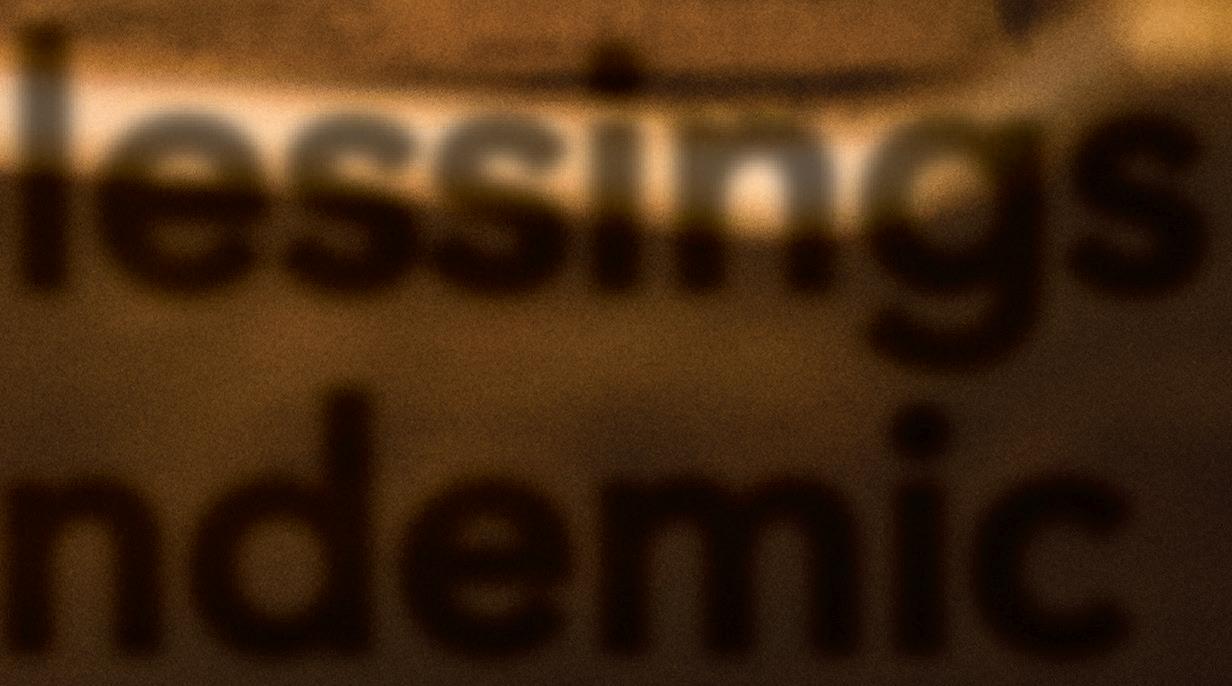
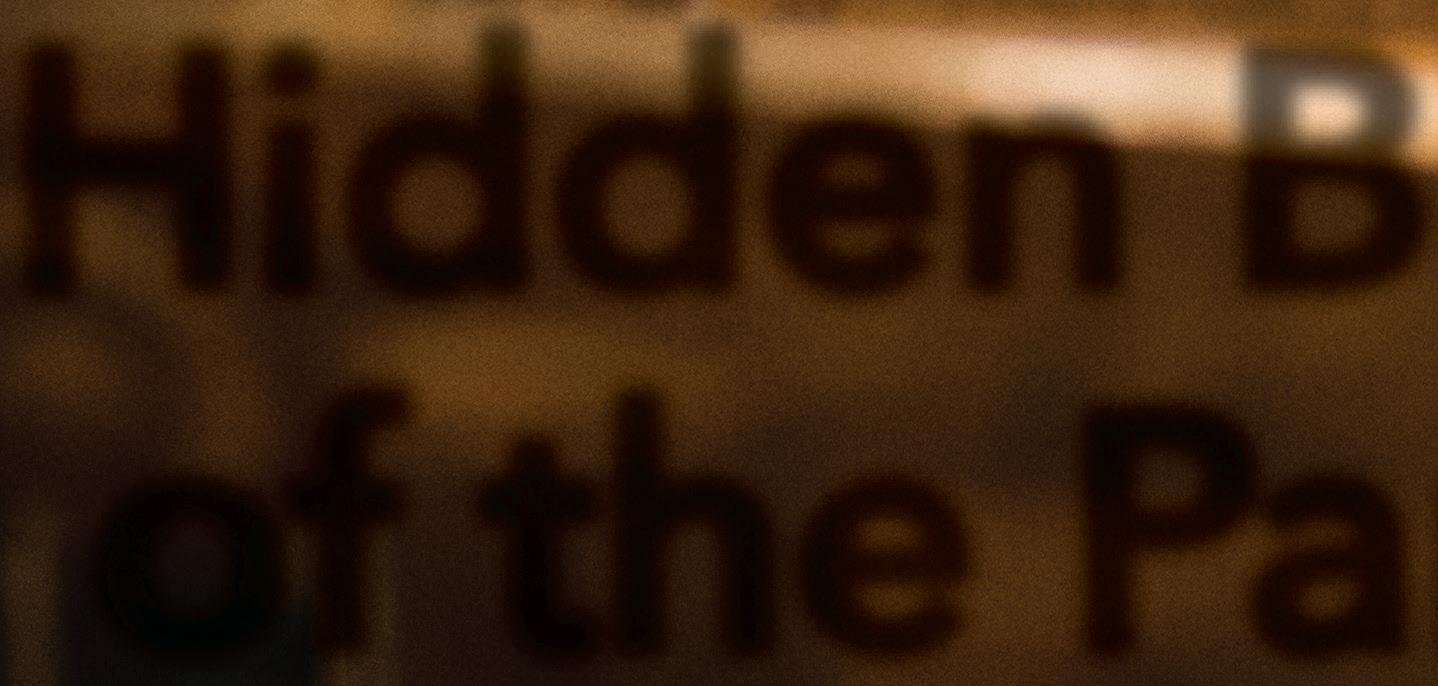
Advertisement
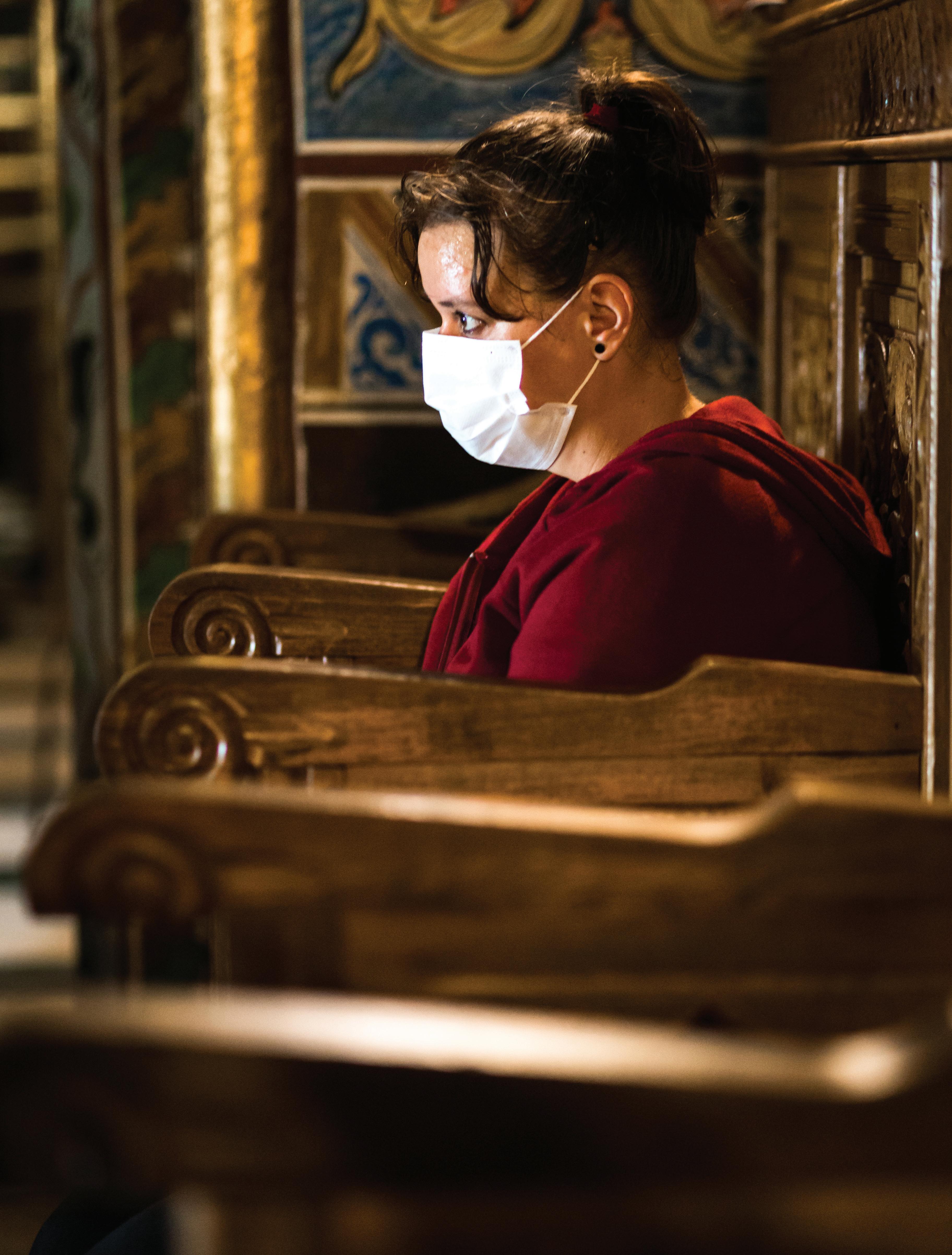
“All manner of things shall be well.” Julian of Norwich’s words and the example of the hermit saints can help us embrace solitude as an opportunity to grow closer to God.
“I’ve had about all the isolation I can stand,” a friend tells me. “At first, distancing for COVID-19 felt kind of heroic, but now that it’s stretching on and the weather’s cold and dark—well, sometimes I’m so exhausted I feel like I can’t take anymore. Much longer, and I’m afraid I’ll start acting like one of those crazy old haggard desert hermit saints.”
As someone who has long studied and written about saints, I smiled at the wisdom in that remark. Though I haven’t become “crazy” or “haggard,” my own COVID-19 experience has been wonderfully supported by the example of just the sort of folks she was alluding to: early Christian desert hermits and medieval anchoresses.
NURTURING FAITH IN SOLITUDE
LESSONS FROM THE SPIRITUAL LONERS
What a gift their wisdom offers to us at this exact point in history. These men and women embraced solitude deliberately, reverently. As a widow and one of the 36 million Americans whose immediate household consists only of themselves, in fact, I’ve found it life-sustaining.
Granted, embracing hermit saints as mentors might seem like a bit of a stretch. For one thing, they seem so eccentric—wildly enthusiastic and devout, careless of physical appearance, people who lived in caves or isolated themselves atop pillars. Their asceticism was so strict that it might border, to our contemporary eyes, on pathological self-punishment.
Even deliberately retreating from the world may appear strange to us. From childhood, after all, we’ve been taught that continual sociability is essential for a happy, healthy psychological life. Loners are mistrusted and scorned as losers (think of all those crime shows where the observation that “he’s a loner” is the first clue to guilt). Many among us get nervous when alone, seeking the security of companionship pretty much 24/7.
But these saints understood solitude very differently. They didn’t withdraw because they were deranged or shunned. They embraced isolation gratefully and joyfully, rewriting the inner script of what retreat meant. For them, solitude wasn’t a dreary punishment, but a potentially rich opportunity for spiritual and personal growth.
Historical accounts suggest that both desert and medieval hermits literally sang God’s praises, celebrating with joyful music that passersby paused to enjoy. One famous medieval anchoress, the mystic Julian of Norwich, emphasized God’s unfailing love in affirmative reflections even now familiar in popular culture. “All shall be well,” was her credo, “All manner of things shall be well.”
Neither did they totally shun contact with others. Over time some desert monks banded into the first, loose monastic communities, and their sayings indicate that getting along charitably with one’s neighboring monks was considered
essential to holiness. Pilgrims visited too, seeking advice and inspiration. Many hermits spent time doing charitable work. Desert fathers and mothers wove reed baskets and sold them for alms; medieval anchoresses made clothing to donate. One desert elder ranked caring for the sick and praying to God as equally virtuous. These hermits’ prayers and mystical experiences in themselves were held to contribute to the broader salvation of the human community. And so these hermits made profound meaning of their lives as solitaries, seeing in their socially isolated state precious opportunities to seek God, tend their own souls, and serve others. I believe that their positive take on isolation has much to teach those who are struggling with the social consequences of COVID-19 today. True, our “vows” may be unsought and temporary, even resented. And I’m We would do well to not suggesting that we imitate these early solitaries in the extremes of hermetic frame our presumably asceticism. I’ll admit that somebody like once-in-a-lifetime Pelagia—or even Julian—would likely removal from others as find me severely deficient in rigor, since I a holy opportunity, a confess to considering long, hot baths as a calling offering its own distinctive blessings. perk of more home time, and a new, cozy sweater comforts me on chilly predawn mornings at the writing desk. Still, if you’re chafing at the seemingly endless restrictions and feel your resolve slipping and your heart despairing, I invite you to join me in reframing your attitude toward solitude. It’s not too late to reboot. Just imagine how embracing the months immediately ahead as holy opportunities—versus with resentment and sadness—might change your life for the better long after the pandemic ends. How? Here are some suggestions.
BECOME MORE DEEPLY AWARE OF GOD’S PRESENCE
Prayer was the centerpiece of a hermetic life—in fact, given solitaries’ constant openness to God’s presence, it was life. In this period of decreased social interactions, consider adopting your own formal daily prayer practice—perhaps employing the time you’d spend commuting if you now work from home. Pray the rosary or other traditional Catholic prayers with an undivided heart; investigate centering/contemplative prayer. Listening to sacred music such as Gregorian chants can also open prayerful communication. Let your spirit be quieted and soar in the early morning or night hours, feeling God’s presence. Another way to pray involves wordless celebration of God’s created world as an emblem of divine goodness (the hermit St. Anthony recommended this). Take a walk alone in a park or forest; sit in your backyard or gaze out a window. No music or audiobooks: Be present with open eyes
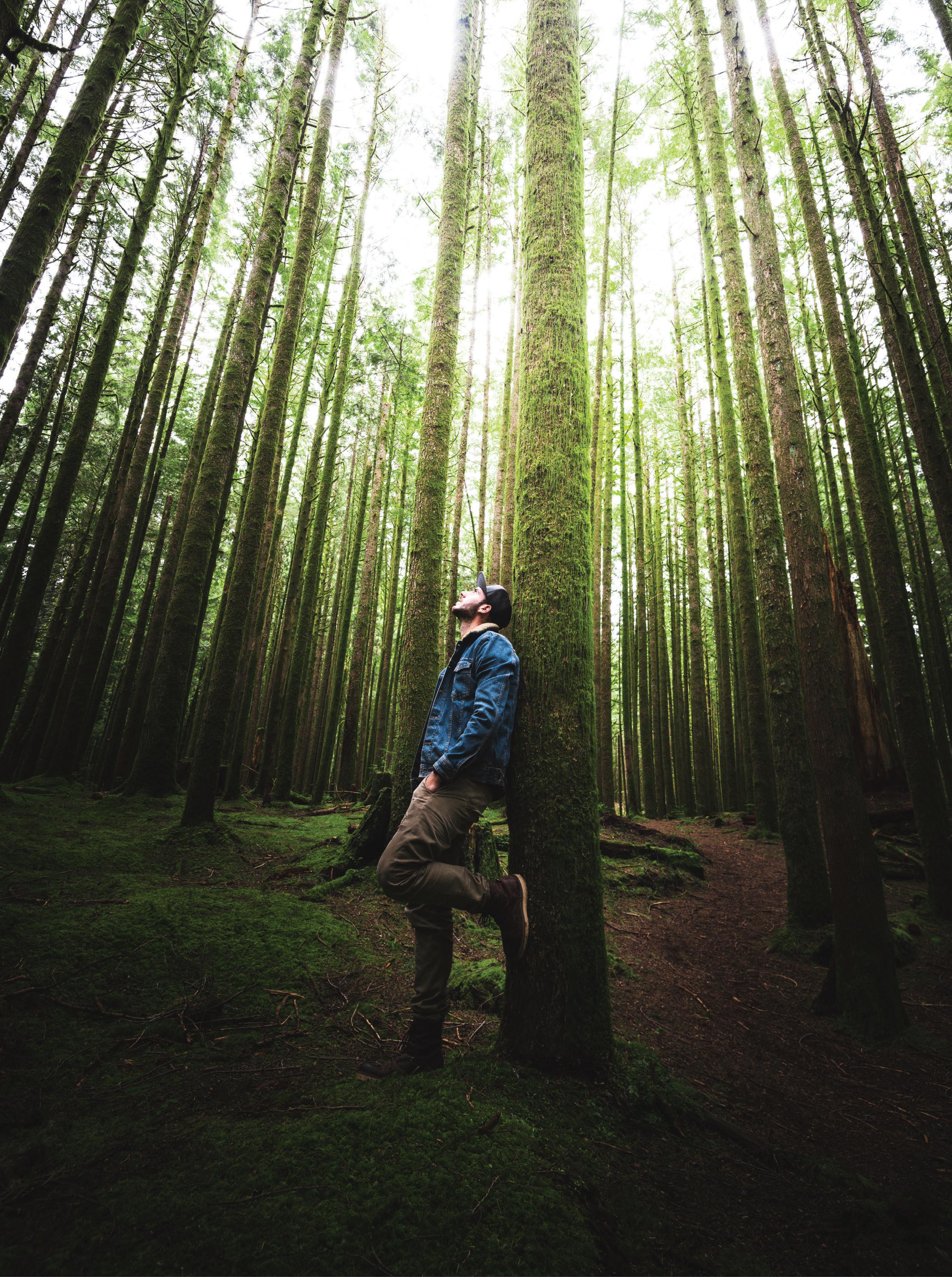
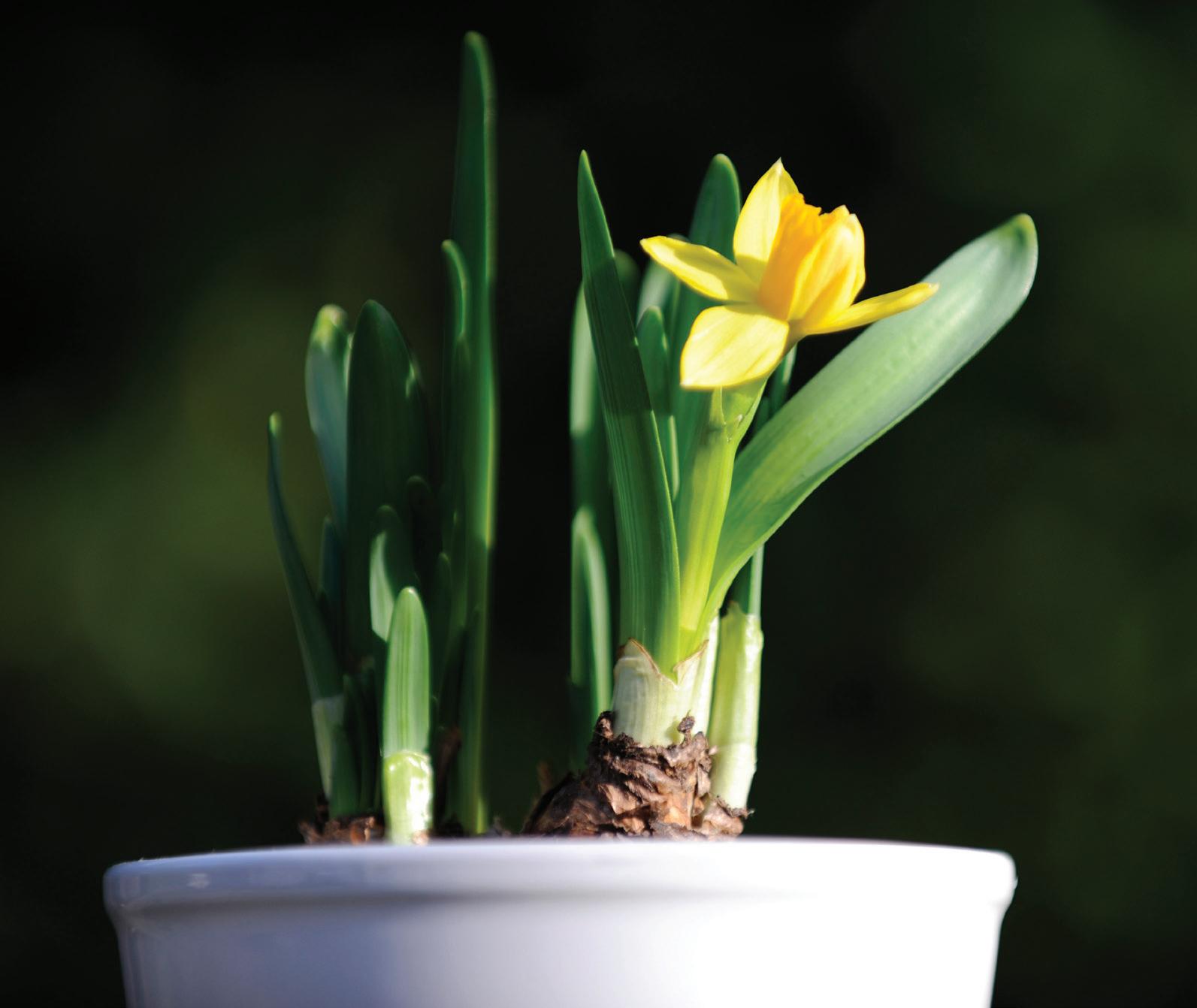
and ears, noting each day a few things that inspire you with joy, affection, or wonder. Make them specific (not “the birds,” but one particular chickadee perched on a sunflower head, bobbing as it picks at seeds and calls). Keep a journal of notes and/or sketches and photographs that lists each day’s particular reminders of the indwelling divine bounty.
GO INWARD AND CULTIVATE YOUR SPIRITUAL DEVELOPMENT
Hermits withdrew from the secular world because they believed it distracted them from God and tempted them to grasping, ego, and wrong relationships with one another. In their cells, they strove for insight, humility, and gratitude. This wasn’t necessarily an easy task; many of their sayings record struggles with judgment and scruples, even after years in the desert. Yet they persisted, trusting that, with God’s help, they would grow in faith and purity.
Separated by necessity from at least some of the hustle and bustle of ordinary life, you might imagine yourself afforded a precious opportunity to follow their lead in the pursuit of watchful self-knowledge. It may be useful to systematize the process, choosing a particular focus for each day. Consider using the corporal and spiritual works of mercy as a road map, or the seven virtues. If you’re feeling medieval, you can use the seven deadly sins, though please remember that honesty should lead ultimately to appreciation of grace, not corrosive self-loathing. Pray that you might grow in wisdom and note daily one or two concrete steps toward progress. Give thanks for the chance to seek God in such active ways.
Another way to cultivate spiritual development is by daily study. Focus on a part of the Bible you don’t know well, a subject in Church history or theology that interests you, or a saint you’ve been curious about. Consult reliable faith-based and scholarly Internet resources, read magazines, invest in books, and visit the library. This is your chance to take the perfect short course, no grades or papers required.
GO OUTWARD AND BE A BLESSING TO THE WORLD
You think you’re feeling isolated and lonely? Well, I’m betting you can think of others likely feeling even more abandoned. Call some to mind: that elderly person who sits alone on Sundays in the back pew, now isolated at home; that overburdened mother down the block now dealing with her boisterous brood at home all day, every day.
Vow to remind such souls that they are still part of the human family by reaching out to them in the ways now possible, imitating the historical solitaries who made care for others part of their vocation. Write someone an encouraging, admiring note; thank someone for friendship. Invite an acquaintance to a Zoom coffee date, a phone chat, or a pen-pal relationship.
Use your talents in the service of others, as those reed-weaving and needleworking hermit saints did. Make something to brighten another’s day and leave it on a doorstep: cookies, a few potted narcissus bulbs, a simple shawl, a wooden toy, a beaded bracelet. Donate to wider charity, too, as you’re able, perhaps by giving to the food bank money you’d normally spend on restaurant meals or gas.
Above all, remember that this COVID-19 isolation—endless as it seems at this writing—isn’t going to last forever, and eventually we’ll all be called back out into the world’s noise and distraction. Even the great medieval saint Catherine of Siena, after all, heard Jesus ordering her out of her 3-by-9-foot room after three years of solitary contemplation and penance, prepared by that experience to give extraordinary counsel to others, including popes.
Like Catherine, we would do well to frame our presumably once-in-alifetime removal from others as a holy opportunity, a calling offering its own distinctive blessings. People spend a lot of money to go on retreats, after all. Why not embrace this found, free retreat as a time for blooming?
Susan H. Swetnam is the author of more than a dozen books, including the award-winning In the Mystery’s Shadow: Reflections on Caring for the Elderly & Dying. A retired Idaho State University English professor, she now works as a massage therapist with hospice patients, cancer survivors, caregivers, and the bereaved, and is a music minister in her home parish.










